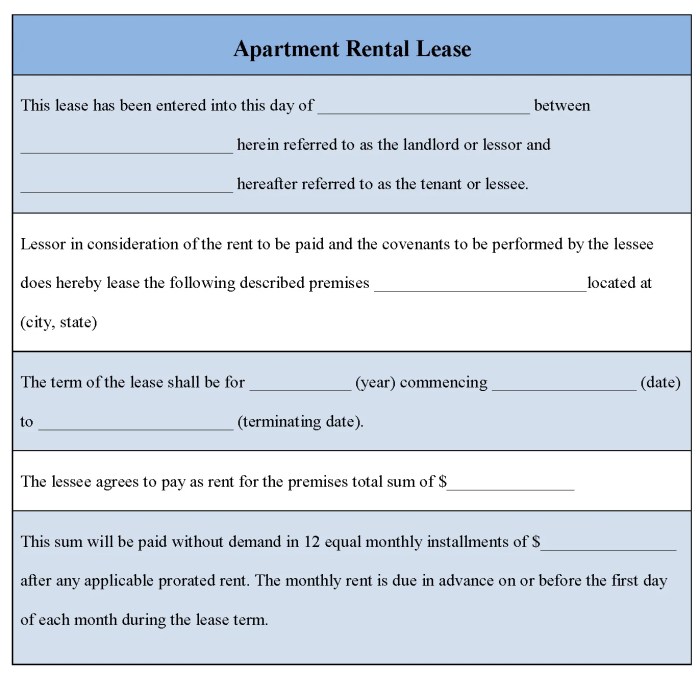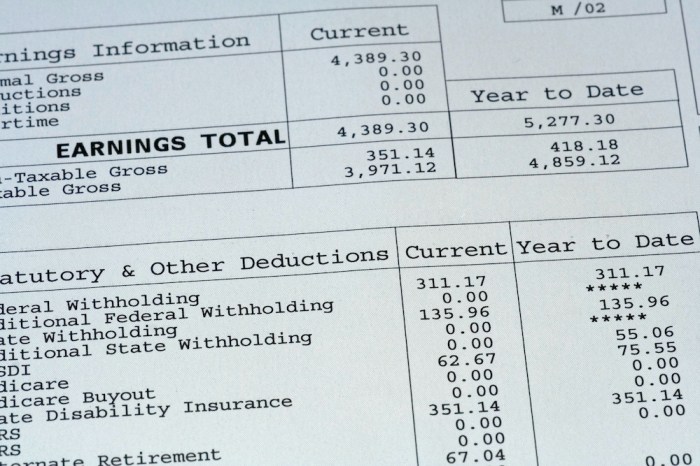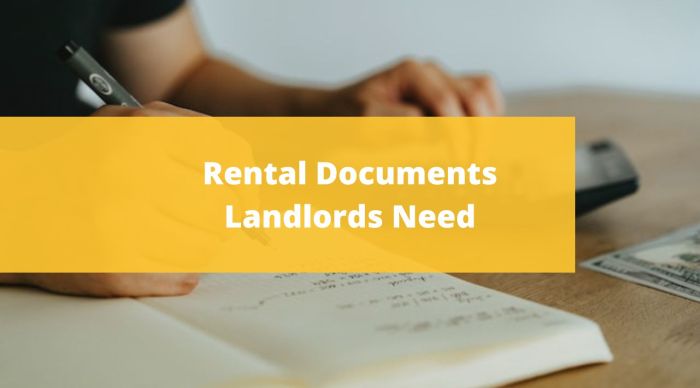What documents are needed to rent an apartment is a crucial question for anyone looking to secure their new home. Understanding the required paperwork not only streamlines the rental process but also enhances your chances of approval. From essential identification to proof of income, each document plays a significant role in establishing your reliability as a tenant.
As you navigate the apartment rental landscape, it’s vital to be aware of the primary documents that landlords typically request. These may vary based on location or specific landlord preferences, which can further complicate the process. Moreover, being prepared for background checks and having the right income verification can set you apart from other applicants. This guide will help you gather everything you need to ensure a smooth rental experience.
Essential Documents for Renting an Apartment

When it comes to renting an apartment, having the right documents ready is crucial for a smooth application process. These documents not only serve as proof of your identity and financial stability but also build trust with potential landlords. Knowing what is needed can save you time and stress during your apartment hunt.In general, there are several primary documents that landlords typically require from prospective tenants.
These documents may vary slightly depending on the location or the landlord’s specific preferences, but understanding the core essentials can help streamline your search.
Primary Documents Required
The following list Artikels the essential documents commonly required to rent an apartment. Each item plays a vital role in the application process, validating both your identity and your ability to pay rent.
- Government-issued ID: A driver’s license or passport is typically needed to verify your identity.
- Proof of Income: Recent pay stubs, W-2 forms, or bank statements show your financial capability to afford rent.
- Rental Application: Most landlords will require you to fill out an application form detailing your rental history and personal information.
- Credit Report: A credit check may be necessary to assess your creditworthiness as a tenant.
- References: Providing contact information for previous landlords or personal references can bolster your application.
Additional Documents Based on Location or Landlord Preferences, What documents are needed to rent an apartment
While the primary documents listed above are essential, some landlords may request additional documentation based on regional norms or personal preferences. Being prepared with these can further enhance your application.
- Employment Verification: A letter from your employer confirming your job position and salary might be required in some cases.
- Rental History: If you’re a first-time renter, additional documentation may be requested to prove your reliability.
- Pet Information: For pet owners, providing vaccination records and proof of pet insurance can be necessary.
- Guarantor Documents: If your income is low or your credit is poor, some landlords might require a guarantor to co-sign the lease.
Document Requirements by Region
The specific documents required to rent an apartment can vary by region or state. Below is a comparative table highlighting some common differences in documentation requirements across various locations in the United States.
| Region/State | Government ID | Proof of Income | Credit Check | Rental History |
|---|---|---|---|---|
| California | Required | Required (last 2 pay stubs) | Commonly Required | Recommended |
| Texas | Required | Required (last 3 months) | Commonly Required | Strongly Suggested |
| New York | Required | Required (last 3 pay stubs and tax returns) | Required | Essential |
| Florida | Required | Required (recent bank statements may suffice) | Commonly Required | Optional |
“Being organized with your documents can significantly improve your chances of securing your desired apartment.”
Verification and Background Checks: What Documents Are Needed To Rent An Apartment
The process of renting an apartment involves several crucial steps, one of the most significant being the verification and background checks conducted by landlords. These checks serve as a fundamental part of the rental process, allowing landlords to assess the reliability and suitability of potential tenants. The information gathered helps landlords make informed decisions and ensures a safer rental environment for all parties involved.Background checks are integral to the rental process.
They provide landlords with insights into a potential tenant’s financial standing, past rental behaviors, and overall reliability. By conducting thorough checks, landlords can mitigate risks associated with renting their property, such as missed rent payments or potential property damage. This practice not only protects the landlord’s investment but also helps maintain a harmonious living environment within the rental community.
Types of Personal Information Verified
During the rental application process, landlords typically verify several key pieces of personal information to gauge a tenant’s viability. Understanding what these details can entail is vital for potential renters to prepare adequately.The following aspects are commonly scrutinized during background checks:
- Credit History: Landlords often review credit scores and reports to assess financial responsibility. A higher credit score may indicate a reliable tenant who pays bills on time.
- Rental History: Verification of past rental agreements can provide insight into a tenant’s behavior. Positive references from previous landlords can enhance a tenant’s credibility.
- Employment Verification: Landlords may contact employers to confirm a tenant’s job status and income level, ensuring they can afford the rent.
- Criminal Background Check: Many landlords conduct criminal background checks to ensure the safety of their property and other tenants, which can include searching public records for any past legal issues.
Preparing documents for a background check requires attention to detail and organization. Here are some essential tips for potential renters:
1. Gather Credit Reports
Obtain a copy of your credit report from major credit bureaus, such as Experian, TransUnion, or Equifax. Review it for accuracy and rectify any discrepancies beforehand.
2. Compile Rental References
Create a list of previous landlords with their contact information. Include dates of residence and a brief explanation of your experience as a tenant.
3. Provide Proof of Income
Assemble recent pay stubs, bank statements, or tax returns as evidence of your financial stability. This information reassures landlords of your ability to meet rental payments.
4. Prepare Identification Documents
You also can investigate more thoroughly about what are the benefits of apartment living to enhance your awareness in the field of what are the benefits of apartment living.
Keep copies of government-issued ID, such as a driver’s license or passport, readily available for verification purposes.
“Thorough background checks are an essential safety net for landlords, fostering trust and accountability in tenant relationships.”
Income and Employment Verification

Verifying income and employment status is a crucial part of the rental application process. Landlords and property management companies often require proof of income to ensure that prospective tenants have the financial stability necessary to pay rent consistently. This verification helps mitigate the risk of non-payment and provides a sense of security for both parties involved in the rental agreement.Common methods to verify income for rental applications include direct communication with an applicant’s employer, reviewing financial documents, and utilizing third-party verification services.
Each method has its own set of acceptable documents that can substantiate an individual’s financial capability.
Acceptable Documents for Proof of Income
When it comes to proving income, landlords typically accept various forms of documentation. Each type serves a specific purpose and offers varying levels of verification.
- Pay Stubs: These are the most common form of income verification. Applicants should provide the most recent pay stubs, ideally covering at least the last two months. Pay stubs detail gross income, deductions, and net pay, giving landlords a clear view of earnings.
- Tax Returns: Providing complete tax returns for the past one or two years can give a comprehensive overview of an applicant’s financial situation. This is especially relevant for individuals with fluctuating incomes or those who are self-employed.
- Bank Statements: Monthly bank statements can serve as proof of income by showing regular deposits from an employer or other sources of income. Typically, landlords request the last three months of statements to assess the flow of income.
- Employment Verification Letter: A letter from an employer confirming the applicant’s salary, position, and employment status can be useful. This letter should be on company letterhead and may be requested for additional verification.
- Form 1099s: For self-employed individuals or freelancers, 1099 forms are critical. These documents show income earned from various sources and should be supplemented with additional documents like invoices or contracts.
In addition to proof of income, employment verification can also play a significant role in the rental application process. The following are commonly accepted forms of employment verification:
- Direct Employer Contact: Landlords may directly reach out to the applicant’s employer to confirm employment status, job title, and salary.
- Offer Letters: For individuals starting new jobs, an offer letter can serve as documented proof of employment and expected salary.
- Paychecks: Copies of recent paychecks can also be used to validate income, as they show actual payments made to the employee.
Having the right documentation ready can significantly ease the rental application process. It provides clarity and confidence for landlords while ensuring that applicants present their financial reliability effectively.
Tips for Document Preparation

Organizing your rental application documents effectively is crucial to making a positive impression on potential landlords. A well-prepared application can not only streamline the process but also enhance your chances of securing the apartment you desire. By following some strategic tips, you can ensure that your documentation is both comprehensive and presented clearly.When compiling your rental application documents, it’s essential to have a systematic approach.
This involves gathering all relevant information and presenting it in a manner that is easy for landlords to review. Below is a checklist of necessary documents that should be gathered prior to initiating the rental application process.
Document Checklist
A comprehensive checklist can help you ensure that you have all the required documents ready, minimizing delays in your application process. Below are the essential documents to gather:
- Completed rental application form
- Government-issued ID (e.g., passport, driver’s license)
- Proof of income (e.g., pay stubs, tax returns)
- Employment verification letter
- Credit report (optional but beneficial)
- Previous rental history (if applicable)
- References (e.g., former landlords or employers)
In addition, consider the importance of presenting these documents clearly. It is crucial to organize your documents in a manner that allows for easy review during application meetings with landlords. Here are some strategies to achieve an effective presentation.
Strategies for Clear Presentation
When meeting with landlords, the way you present your documents can significantly impact their perception of you as a tenant. Here are some strategies to optimize your presentation:
- Use a binder or folder to keep documents neatly organized.
- Label each section clearly for quick access.
- Provide copies of all documents instead of handing over originals unless specifically requested.
- Arrange documents in a logical order, starting with the application form and followed by identification, income proof, and references.
- Be prepared to discuss any document briefly to clarify its relevance.
“First impressions matter; presenting your documents neatly and professionally can set you apart from other applicants.”
By adhering to these tips and strategies, you will be well-equipped to present your rental application documents effectively, increasing your chances of securing your desired apartment.